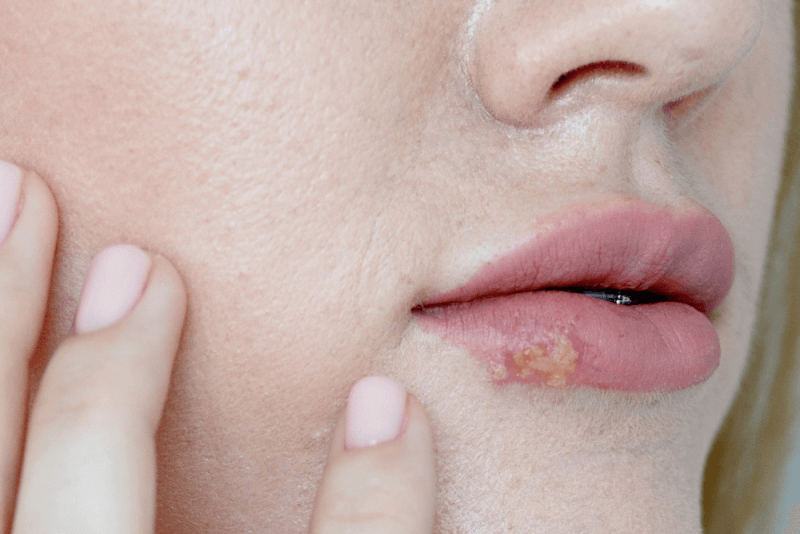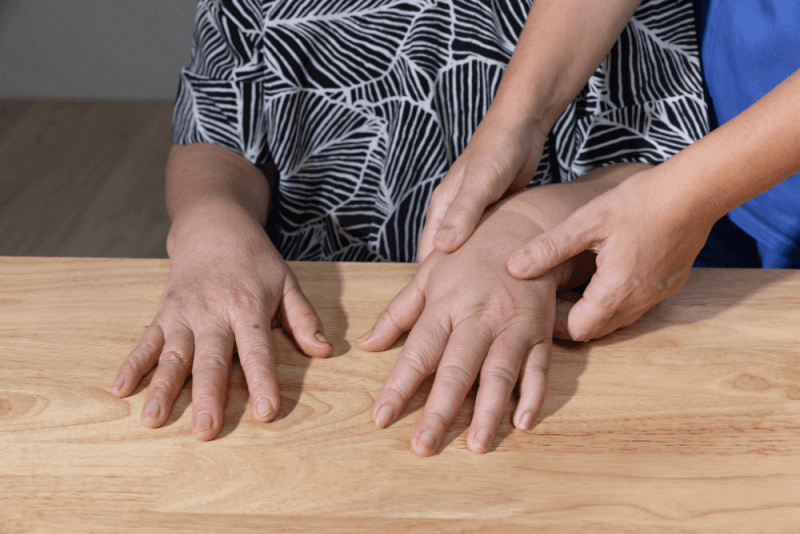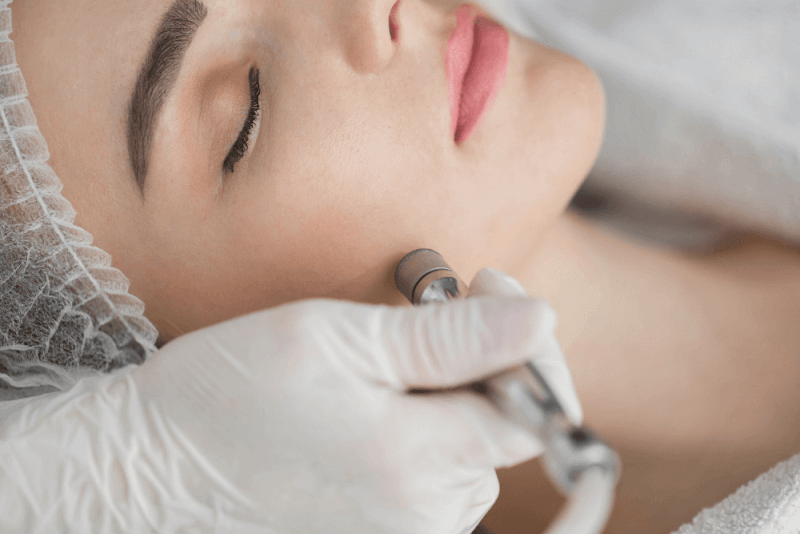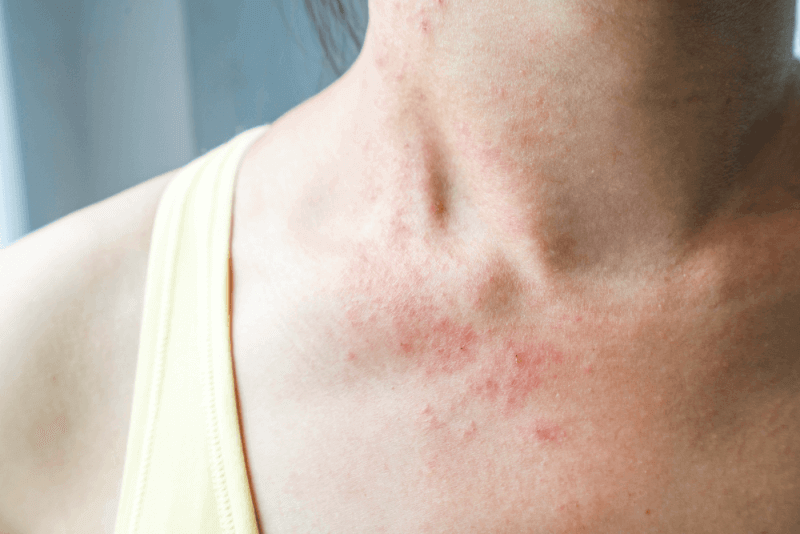What is a Cold Sore?
A cold sore is a skin infection caused by the Herpes simplex virus. This lifelong infection occurs in episodes, causing itchy, blistery, and painful sores. Usually harmless, cold sores can be dangerous for babies and people with weakened immune systems. There are two types of Herpes simplex viruses.
The first type, Herpes simplex 1, is commonly known as oral herpes and spreads through saliva. The second type, Herpes simplex 2, is transmitted through sexual contact.
In some cases, the virus can affect the eyes or other parts of the skin. Both types of the virus can spread through contact and can appear on any skin area that comes into contact with the virus.
Who gets Cold Sores?
Cold sores can occur in anyone, but the risk is higher in the following situations:
- Having multiple sexual partners
- Starting sexual activity at a young age
- Having a history of any sexually transmitted infections
- Having a weakened immune system
- Not using condoms during sexual intercourse
Causes of Cold Sores
Cold sores spread through person-to-person contact. The virus can be present in the skin and saliva, so the risk of transmission is higher when sores are present. In some cases, transmission can occur even without symptoms.
Transmission of HSV 1
HSV 1 can be transmitted through:
- Kissing
- Touching the skin around the lips
- Sharing dishes, lipsticks, or razors
- Oral sex with someone who has a cold sore
Transmission of HSV 2
HSV 2 can be transmitted through:
- Sexual intercourse
- Oral sex with an infected person
- Skin-to-skin contact
- Touching open sores, including during breastfeeding
- Giving birth during an active infection
Symptoms of Cold Sores
Not everyone with the virus shows symptoms. When symptoms appear, the first outbreak is usually severe. Subsequent outbreaks are generally less severe. Some people may experience one or two outbreaks in their lifetime, while others may have outbreaks every 4-5 years. Symptoms of cold sores include:
- Cold sores around the lips, mouth, or tongue that appear as crusty or fluid-filled blisters
- Sores around the genital area or anus
- Tingling
- Itching
- Pain
- Burning
- Fever
- Swollen lymph nodes
- Muscle aches
- Painful urination
Treatment of Cold Sores
Cold sores generally do not require treatment. However, some people opt for treatment options to shorten the duration of symptoms.
Creams for Cold Sores
Antiviral creams can help relieve symptoms and speed up the disappearance of cold sores. These creams are most effective when applied at the onset of symptoms. Some of these creams include:
- Acyclovir
- Famciclovir
- Valacyclovir
Which Vitamin Deficiency Causes Cold Sores?
Cold sores are not caused by any vitamin deficiency. However, vitamin D and E can help cold sores heal faster when symptoms appear.
How to Get Rid of Cold Sores?
To prevent cold sore outbreaks, avoid triggers like illness or stress. Methods to relieve oral cold sore symptoms include:
- Over-the-counter creams like L-lysine, benzocaine, or docosanol
- Nonsteroidal anti-inflammatory drugs (NSAIDs)
- Applying ice to the blisters
Methods for dealing with genital herpes include:
- Applying an ice pack to the genital area
- Keeping the genital area dry
- Avoiding tight clothing
- Wearing cotton clothing
- Taking warm baths
- Using NSAIDs to relieve pain
- Using topical analgesics
Where Do Cold Sores Appear?
Cold sores can appear anywhere on the skin but are most commonly found on the lips, eyes, and genital area.
Cold Sores on the Lips
Cold sores on the lips are a common viral infection that causes small, fluid-filled blisters around the lips. These blisters often group in patches. After the blisters break, a crust forms that can last a few days, typically healing within 2-3 weeks.
Ocular Herpes
Ocular herpes is an eye disease caused by the Herpes simplex virus. The virus can affect many parts of the eye, including the eyelids, cornea, inner lining of the eyelids, white part of the eye, and retina. It is a significant cause of blindness worldwide due to its impact on the optic nerves.
Genital Herpes
Genital herpes is a common sexually transmitted infection that can spread from person to person even without symptoms.
Cold Sores and Diet
Studies on cold sores and diet show that certain foods can influence cold sores. A healthy diet helps reduce symptoms. However, the virus affects individuals differently. Avoiding triggers like wine and coffee can reduce outbreaks. Foods like chocolate and nuts contain the amino acid arginine, which can cause cold sore recurrences.








